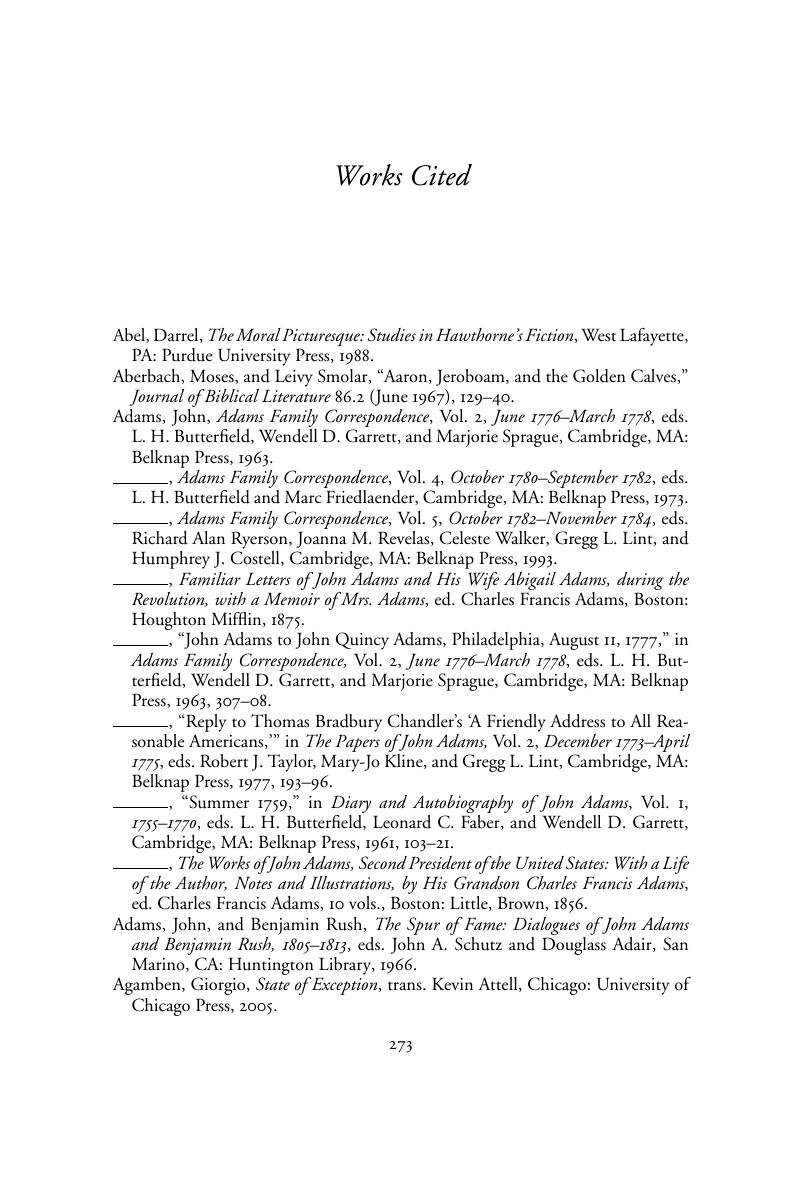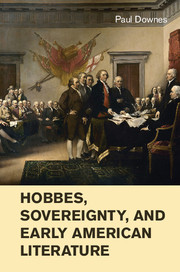Book contents
- Hobbes, Sovereignty, and Early American Literature
- Cambridge Studies in American Literature and Culture
- Hobbes, Sovereignty, and Early American Literature
- Copyright page
- Dedication
- Contents
- List of Figures
- Book part
- Introduction
- Chapter 1 Sovereignty's New Clothes
- Chapter 2 RereadingLeviathan
- Chapter 3 Hobbes in America
- Chapter 4 “Heaven's Sugar Cake”
- Chapter 5 Tyranny's Corpse
- Chapter 6 “Imperium in Imperio”
- Chapter 7 Tar and Feathers
- Chapter 8 Hobbes, Slavery, and Sovereign Resistance
- Chapter 9 Nat Turner and the African American Revolution
- Notes
- Works Cited
- Index
- References
Works Cited
Published online by Cambridge University Press: 05 August 2015
- Hobbes, Sovereignty, and Early American Literature
- Cambridge Studies in American Literature and Culture
- Hobbes, Sovereignty, and Early American Literature
- Copyright page
- Dedication
- Contents
- List of Figures
- Book part
- Introduction
- Chapter 1 Sovereignty's New Clothes
- Chapter 2 RereadingLeviathan
- Chapter 3 Hobbes in America
- Chapter 4 “Heaven's Sugar Cake”
- Chapter 5 Tyranny's Corpse
- Chapter 6 “Imperium in Imperio”
- Chapter 7 Tar and Feathers
- Chapter 8 Hobbes, Slavery, and Sovereign Resistance
- Chapter 9 Nat Turner and the African American Revolution
- Notes
- Works Cited
- Index
- References
Summary

- Type
- Chapter
- Information
- Hobbes, Sovereignty, and Early American Literature , pp. 273 - 286Publisher: Cambridge University PressPrint publication year: 2015



